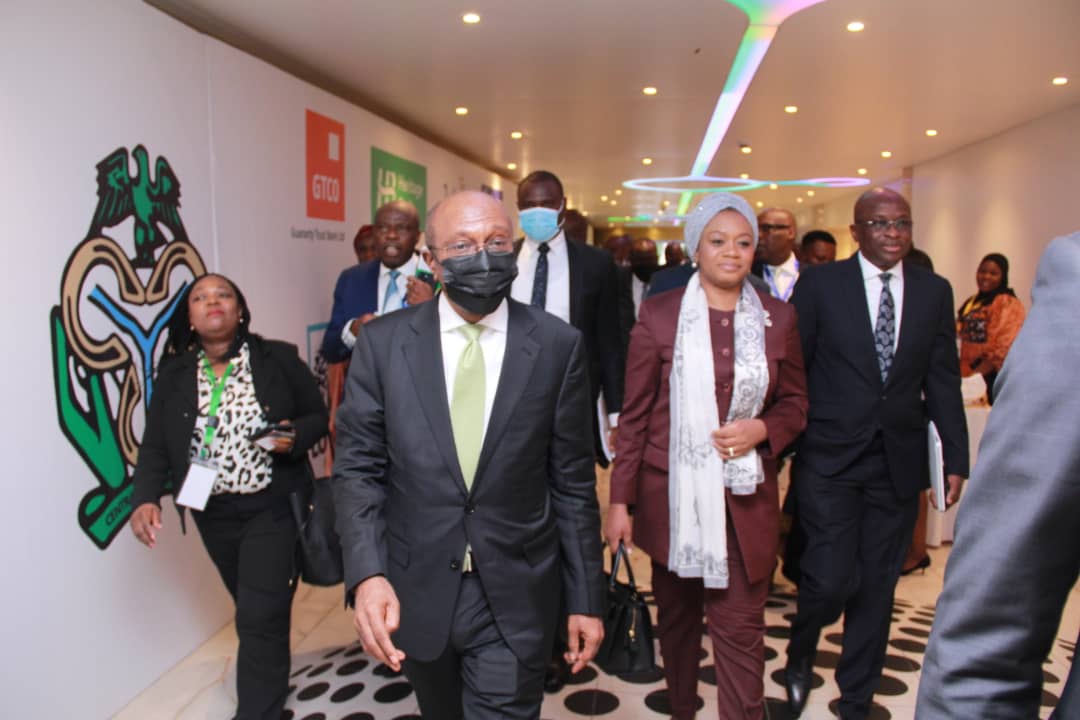Business
15.5% MPR Increase’ll Control Inflation – CBN

The Central Bank of Nigeria
(CBN) says its Monetary Policy Committee’s decision to increase Monetary Policy Rate (MPR) is to control rising inflation.
CBN’s Director, Monetary Policy Department, Hassan Mahmoud, stated this, midweek, at a post-MPC briefing tagged “Unveiling Facts behind the Figures’’.
Recall that the MPC, in its 287th meeting on Tuesday, had increased the MPR by 150 basis points, from 14 per cent to 15.5 per cent.
The MPR is the baseline interest rate in an economy on which other interest rates within that economy are built on.
CBN Governor, Godwin Emefiele, had explained that the decision was informed by persistent rise in inflation rate and fragile economic growth.
Mahmud had explained further that the MPC got to a point where stringent measures have to be taken to control inflation.
He said the committee took cognisance of global and local economic issues in arriving at its policy decisions.
“We raised the MPR because it is necessary to do so. The quantity of money in the system was too much for the economy to absorb”, he said.
He continued that monetary policy tools were meant to deal with short term risks, adding that the idea was to make the cost of funds expensive to drive down inflation.
According to Mahmud, the stimuluses that governments across the world provided for their citizens during COVID-19 increased the ability of people to spend, thereby, creating challenges with global supply.
“A lot of households and small businesses were injected with stimuluses; the U.S did two trillion dollars, Nigeria did about five trillion Naira, these increased the ability of people to spend.
“But the supply side could not meet up with the demand because that volume of injection was far more than the regular intake for those economies, this made prices to go up,’’ he said.
He also blamed the Russian-Ukraine war, as well as the resurgence of COVID-19 in China as responsible for rise in global inflationary trend.
“That region accounts for more than 50 per cent of global commodity supply and 38 per cent of global oil and gas supply.
“The war resulted to some shortages which made prices to go up. Then the COVID-19 lockdown in China. The country is the largest importer of commodities across the globe,’’ he said.
Speaking on the various economic intervention initiatives by the apex bank and the prospect of recouping the funds, the Director, Development Finance Department, Dr Yusuf Yila, said about nine trillion Naira had been invested in the various development finance interventions.
He, however, said all the monies would be recovered.
According to Yila, N9.3 trillion has been invested in various development finance interventions, out of which N3.7 trillion has been repaid.
“Most of the loans are still under moratorium, especially those in manufacturing. Manufacturing forms the largest part of our portfolio, about 31 per cent,’’ he said.
He said one of the best-performing interventions was the Commercial Agriculture Credit Scheme, where out of the N800 billion that was lent out, about N700 billion had been repaid.
Yila said that through the flagship agriculture intervention scheme, the Anchor Borrowers Programme, one trillion Naira had been lent out to smallholder farmers, while about N400 billion has so far been recovered.
According to him, the department will restrict intervention to critical sectors like the SMEs and the electricity sector for now.
Speaking on the depreciation of the Naira, the Director, Trade and Exchange Department, Mrs Ozoemena Nnaji, said the apex bank was taking steps to firm up the currency.
Nnaji said that demand for foreign exchange outstripped supply currency, adding that the CBN was doing a lot to mop up supply.
“One of the steps is the Naira for dollar remittance drive, which has resulted to a huge increase in diaspora remittances.
“There is also the RT200 bringing in forex. Repatriation has gone up from 20 million dollars in the first quarter to about 600 million dollars in the second quarter.
“In this third quarter we are looking at more than one billion dollars of repatriated inflows,’’ she said.
Business
Nigeria’s ETF correction deepens as STANBICETF30, VETGRIF30 see 50% decline in a week

Business
BOI Introduces Business Clinic

Business
Dangote signs $400 mln equipment deal with China’s XCMG to speed up refinery expansion

-
Maritime3 days ago
Nigeria To Pilot Regional Fishing Vessels Register In Gulf Of Guinea —Oyetola
-

 Sports3 days ago
Sports3 days agoGombe-Gara Rejects Chelle $130,000 monthly salary
-
Maritime3 days ago
Customs Declares War Against Narcotics Baron At Idiroko Border
-
Maritime3 days ago
NIMASA,NAF Boost Unmanned Aerial Surveillance For Maritime Security
-

 Sports3 days ago
Sports3 days agoTEAM RIVERS SET TO WIN 4×400 ” MORROW” …Wins Triple jump Silver
-

 Sports3 days ago
Sports3 days agoNPFL Drops To 91st In Global League Rankings
-

 Sports3 days ago
Sports3 days agoNPFL Impose Fines On Kwara United Over Fans Misconduct
-
Maritime3 days ago
NIWA Collaborates ICPC TO Strengthen Integrity, Revenue

